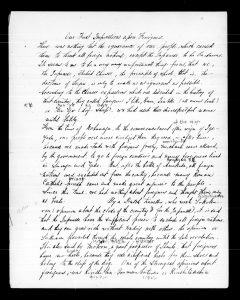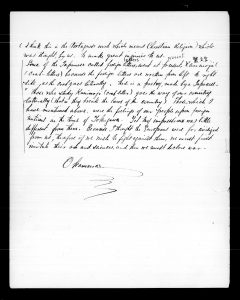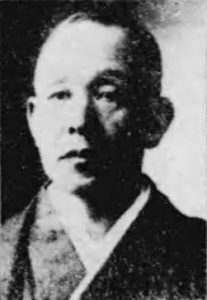
 Our First Impressions upon Foreigners
Our First Impressions upon Foreigners
(Transcribed by Caitlin Moy and Raj Malhotra)
There was nothing but the ignorance of our people which caused them to think all foreign nations, except the Japanese, to be barbarous. It seems to me to be a very very unfortunate thing for us, that we, the Japanese, studied Chinese, the principle of which, that is, the doctrine of ____, is only to make us as ignorant as possible. According to the Chinese expressions, which one described in the history of that country, they called foreigners Iteki, Bani,__ (all meant brute) or Ken Yo (dog-sheep). We had used these disrespectful names until lately.
From the time of Nobunaga, to the commencement of the reign of Iye-Yasu, our people were more civilized than they were in after times, because we made trade with foreigners freely, merchants were allowed, by the government, to go to foreign countries and many foreigners lived in Suruga and Yedo. But, after the Battle of Amakusa, all foreign nations were excluded out from the country, because many Roman Catholic priests came and made great injuries to the people. Since this time, we had nothing about foreigners and thought them only as brute.
By a Dutch traveller, who wrote Sakokuron (opinion about the elite of the country for the Japanese), it it said that the Japanese have the sufficient power to exclude all foreign nations, and they can grow rich without trading with others, the opinion or Sakokuron prevailed through the whole country until the late revolution. This also said by Motoori, a great professor of Shinto, that foreigners have no heels, because they use artificial heels for their shoes and belong to the club(?) of the dog. One of the strongest opinions about foreigners, was Kirishitan-Iruman- bateren or Kirishitanshin (I think this is the Portuguese word which means Christian Religion) which was thought, by us, to make great injuries to us.
Some of the Japanese called foreign letters, event at present, Kanimoji (crab-letters) because the foreign letters are written from left to right side, as the crab goes laterally. There is a poetry, made by a Japanese, “those who study Kanimoji (crab letter) goes the way of our country laterally (that is they break the laws of the country).[”] Those, which I have mentioned above, were the feelings of our people upon foreign nations in the time of Tokugawa. Yet my impression was little different from theirs. Because I thought the Europeans were far civilized from us, therefore if we wish to fight against them, we must first imitate their arts and sciences, and then we must declare war.
Okamura
 OKAMURA TERUHIKO 岡村輝彦 (1855? – 1916)
OKAMURA TERUHIKO 岡村輝彦 (1855? – 1916)